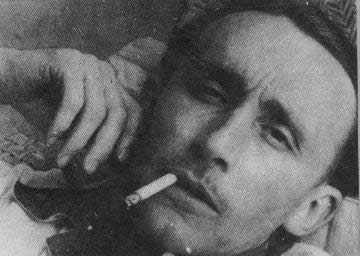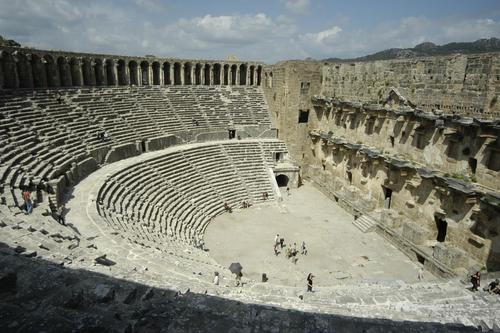All films are about the theater, there is no other subject.
— Jacques Rivette
This provocative statement may need some interpretation or qualification, but it is essentially true and crystallizes the secret of cinema. All great cinema tries to supply what it lacks in relationship to theater — a visceral sense of physical space, the quality of tension in a live performance. It cannot actually supply these things, of course, but in trying to it stretches its resources to the maximum — in trying to be something it's not, it becomes itself more completely.

André Bazin wrote two brilliant essays on this subject, part of his argument in favor of mise en scêne as opposed to montage as the primal method of cinema. His insights have still not been wholly absorbed by film critics, but all great film directors have understood them, if only instinctively.
We may still be amazed that certain of the greatest directors have moved from work in the theater to work in film and displayed an instantaneous and absolute mastery of the latter medium. Orson Welles's first film, for example, Citizen Kane, is still considered one of the finest of all movies, and yet it was done without any significant term of apprenticeship in cinema. Vincente Minelli's first film, Cabin In the Sky, displays a similar mastery of cinematic form and style. His third film, Meet Me In St. Louis, is one of the greatest films ever made. Minnelli, like Welles, moved more or less directly from theater work to movies.
Both Welles and Minnelli wanted to create on film the same excitement they found in theatrical productions, and they both used cinematic techniques in bold and innovative ways to replicate that excitement. They are recognized as two of the most “cinematic” filmmakers, but that's just a way of saying that they were two of the most theatrical filmmakers.
Cinema can do many non-theatrical or anti-theatrical things — it can create interesting graphic designs, it can bombard us with spatially incoherent images — but no one has managed to create great art out of these techniques, despite the claims of the cinematic avant garde. It is only when cinema uses its most theatrical techniques that it is capable of genuine aesthetic grandeur.

One can speculate about why this is, but I suspect it has something to do with the primal significance of the theatrical experience, as it relates to ceremony and ritual. We dream in theatrical terms, creating coherent spaces in the imagination in which incidents unfold in dramatic time — as in dreams of pursuit, for example. We could dream in flat graphic images, or in a succession of unrelated or abstractly related images, but we don't. The imaginative rehearsal of emotion seems to require the spatial and chronological coherence of a theatrical environment.
The one exception to this rule among all the other arts is music. Though it's undoubtedly true that music as an advanced art evolved out of theatrical practice, out of ceremony and ritual, it seems to have an aspect more primal than that, perhaps originating in the rhythmic soothing of an infant. Throughout all cultural history music has been a vital adjunct to theatrical practice, but it has a hold on us which exists apart from the theatrical realm, strictly considered.
Considering the matter less strictly, though, one could say that all music involves performance of one sort or another, within certain set parameters of time, and so is essentially theatrical in nature — that music always, on some level, creates, signals and consecrates a theatrical moment, a theatrical space.
